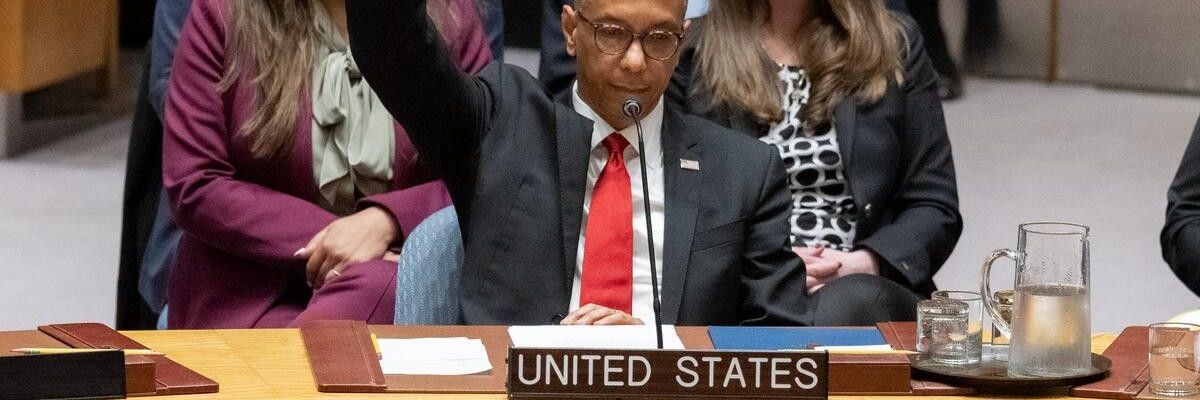U.S. President Joe Biden's administration on Thursday used the country's veto power at the United Nations Security Council to block Palestine's bid to become a full member of the U.N.
While 12 nations voted in favor of Palestinian membership and two abstained, the United States is one of five countries—along with China, France, Russia, and the United Kingdom—who have veto authority at the Security Council.
Since Israel launched what the International Court of Justice has said is a "plausibly" genocidal assault of the Gaza Strip in response to a Hamas-led October attack, the Biden administration has blocked three cease-fire resolutions at the Security Council. Under mounting global pressure, the U.S. finally abstained last month, allowing a cease-fire measure to pass.
In the lead-up to Thursday's vote, the Biden administration was pressuring other countries to oppose the Palestinian Authority's renewed membership effort so it could possibly avoid a veto, according to leaked cables obtained by The Intercept.
"Take a moment to ponder how isolated Biden has made the U.S.," said Trita Parsi, executive vice president of the Quincy Institute for Responsible Statecraft, after the veto. "Biden lobbied Japan, South Korea, and Ecuador HARD to oppose the Palestine resolution so that the U.S. wouldn't have to veto. They refused. So Biden cast his fourth veto in seven months (!!) This is the opposite of leadership."
In addition to the nations Parsi highlighted, Algeria, China, France, Guyana, Malta, Mozambique, Russia, Sierra Leone, and Slovenia voted for giving Palestine full U.N. membership while Switzerland and the United Kingdom abstained.
After the vote, U.N. News reported on remarks from Riyad Mansour, a U.N. permanent observer for the state of Palestine:
"We came to the Security Council today as an important historic moment, regionally and internationally, so that we could salvage what can be saved. We place you before a historic responsibility to establish the foundations of a just and comprehensive peace in our region."
Council members were given the opportunity "to revive the hope that has been lost among our people" and to translate their commitment towards a two-state solution into firm action "that cannot be maneuvered or retracted," and the majority of council members "have risen to the level of this historic moment, and they have stood on the side of justice and freedom and hope, in line with the ethical and humanitarian and legal principles that must govern our world and in line with simple logic."
"The fact that this resolution did not pass will not break our will, and it will not defeat our determination," Mansour added. "We will not stop in our effort. The state of Palestine is inevitable. It is real. Perhaps they see it as far away, but we see it as near, and we are the faithful."
Parsi said that "a Western-friendly senior Global South diplomat" told him of Biden's veto: "Whatever agonizing claim the U.S. had to lead a self-appointed free world has died a very loud public death on the Security Council horseshoe tonight. YOU CAN'T LEAD IF YOU CAN'T LISTEN."
Biden, a Democrat seeking reelection in November, has faced fierce criticism in the United States and around the world for U.S. complicity in Israel's war on Gaza—which Hamas, not the Palestinian Authority, has controlled for nearly two decades. In under seven months, Israeli forces have killed 33,970 Palestinians, injured another 76,770, displaced most of the besieged enclave's 2.3 million population, devastated civilian infrastructure, and severely limited the flow of lifesaving humanitarian assistance.
Israel—which already got $3.8 billion in annual U.S. military aid before October 7—continues to receive weapons support from the Biden administration, even as a growing chorus of critics, including some Democrats in Congress, argues that the arms transfers violate U.S. and international law.




